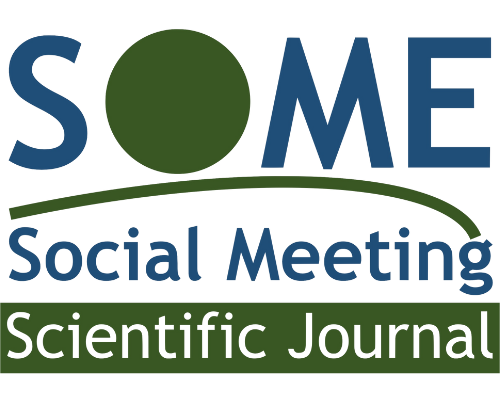A dialética de Marx e a naturalização capitalista da pobreza.
La dialéctica de Marx y la naturalización capitalista de la pobreza.
Marx's dialectic and the capitalist naturalization of poverty
Evandro Prestes Guerreiro.
Resumo
O estudo parte de análise teórico-metodológica, na perspectiva da tese e antítese, para que o leitor estabeleça a síntese, que melhor traduza sua história de vida, quanto a consciência da “naturalização” capitalista da pobreza, desigualdade humana e alienação social pelo trabalho. Este fenômeno estrutural, por assim qualificar a “naturalização” como parte indicativa da ideologia liberalista do sistema, que se reinventa com a crise e ressignifica o modo de produzir, possibilitando que o capital gere exponencialmente, mais capital, concentração de riqueza e universalização da pobreza. A especulação financeira, que sendo fora do sistema oficial é ilegal e desconfortante, dentro torna-se legítima e se justifica pelas leis protecionistas, criadas pela classe hegemônica, com o único propósito de lucrar o máximo, em menor tempo possível e de forma hereditária. A cultura que potencializa a tradição é a mesma que legitima a especulação. Com esta compreensão, interpreta-se, a partir do método dialético materialista e sócio-histórico, substanciado pela estrutura filosófica da tese-antítese-síntese, o que escreveu Karl Marx sobre a pobreza, no modo de produção capitalista. O mais contundente crítico do capitalismo, sentiu cotidianamente a carência material e seus reflexos na expectativa de vida do ser humano, foi sujeito e objeto de seu estudo, também foi testemunha do significado da família despossuída, dependente, submissa à vontade solidária do outro e a transformação de sonhos de superação, em esperança comprometida e realidade alienada.
Palavras-chave
Resumen
Palabras clave
Abstract
The study starts from a theoretical-methodological analysis, from the perspective of thesis and antithesis, so that the reader can establish the synthesis that best translates his/her life story, as to the consciousness of the capitalist "naturalization" of poverty, human inequality, and social alienation through labor. This structural phenomenon, for so qualifying the "naturalization" as indicative part of the liberalist ideology of the system, which reinvents itself with the crisis and re-signifies the mode of production, enabling capital to exponentially generate more capital, concentration of wealth and universalization of poverty. Financial speculation, which is illegal and uncomfortable outside the official system, becomes legitimate inside and is justified by the protectionist laws created by the hegemonic class, with the sole purpose of making the most profit in the shortest time possible and in a hereditary way. The culture that strengthens tradition is the same one that legitimizes speculation. With this understanding, we interpret what Karl Marx wrote about poverty in the capitalist production mode, based on the dialectical materialist and social-historical method, substantiated by the philosophical structure of the thesis-antithesis-synthesis. The most trenchant critic of capitalism, he felt on a daily basis the material deprivation and its consequences in the life expectancy of the human being, he was the subject and object of his study, and also witnessed the meaning of the dispossessed family, dependent, submissive to the solidary will of the other, and the transformation of dreams of overcoming into compromised hope and alienated reality.
Keywords
Referencias
ARISTÓTELES. Acerca del alma Introdução, tradução do grego e notas de Tomás Calvo Martinez. Madrid: Gredos, 1994.
DESCARTES, R. Discurso do método. Tradução J. Guinsburg & B. P. Júnior. 3. ed. São Paulo: Abril Cultural, 1983a, p. 25-71. (Os pensadores).
DURKHEIM, E. Da divisão do trabalho social. Martins Fontes, São Paulo, 2010.
GABRIEL, Mary. Amor & Capital. Rio de Janeiro: Zahar Editora, 2013.
GUERREIRO, Evandro Prestes. A Questão social e a cidadania no neocapitalismo: competências profissionais no trabalho social. Curitiba: Brazil Publishing, 2020.
GUERREIRO, Evandro Prestes. Cidade digital – infoinclusão social e tecnologia em rede. São Paulo: Senac, 2006.
HEGEL, G. W. F. Princípios da filosofia do direito. Trad. Norberto de Paula Lima. São Paulo: Ícone, 1997. HUNT, Tristram. Comunista de casaca: a vida revolucionária de Friedrich Engels. Traduzido por: Dinah Azevedo. Rio de Janeiro: Record, 2010 (472p).
LEVITT, Steven D., DUBNER, Stephen J. Freakonomics: o lado oculto e inesperado de tudo que nos afeta. Rio de Janeiro: Elsevier, 2005.
MARX, Karl. O capital: crítica da economia política. Livro primeiro. Vol. I. Trad. Regis Barbosa e Flávio R. Kothe. São Paulo, Nova Cultural, 1983.
MASLOW, A. H. Motivation and personality. New York, NY: Harper, 1954.
NETTO, José Paulo. Karl Marx: uma biografia. Rio de Janeiro: Boitempo, 2020.
Star Trek: Discovery, série Netflix. Acesso em 03/03/2020. Disponivel em: https://www.youtube.com/watch?v=G7AI6mN7tck
TOCQUEVILLE, A. de. La Democracia em América. México: Fondo de Cultura Económica, 1957.
TOURAINE, Alain. Crítica da modernidade. Petrópolis: Vozes, 2012.
Submitted date:
03/02/2022
Reviewed date:
10/03/2022
Accepted date:
21/03/2022
Publication date:
28/04/2022

